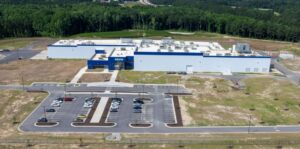Indian investment and holding company Aspada recently announced a $3.3M Series A investment in Delhi-based EM3 AgriServices. EM3 represents one of the first private sector ventures to tackle the field of farm mechanization and technology services. The company’s ultimate mission is to enhance the wealth of small and marginal farmers through building an ecosystem and scalable platform. To that end, EM3 has secured a number of long-term agreements with Indian and global leaders of technology and agricultural firms, including John Deere, ITC Agri Business, Syngenta Foundation, SFAC, Farmer Producer Companies, and many others.
As an active investor in India with a substantial commitment from the Soros Economic Development Fund (SEDF), Aspada’s portfolio includes investments across the agricultural supply chain, logistics, financial services, education, and healthcare. Aspada also manages the SONG Fund portfolio, which is an early stage VC fund backed by the Omidyar network, SEDF, and Google.
“Over 85% of Indian farmers own less than five acres of land—a staggering 77 million farming households,” writes Aspada Managing Partner Katrik Srivatsa in a recent post about the FaaS dynamic. “Indian productivity remains amongst the lowest in the world because we haven’t found scalable ways to help our small hold farmers …” Srivatsa has identified three key ways that the Indian farming industry is failing small-scale farmers. The first consists of finding ways to improve on-farm productivity by improving farming techniques and crop inputs, like seeds.
Second, small farmers need access to small markets to earn a decent profit on their crops. Currently, “there are up to 6 intermediaries post-harvest which lead to both loss in quality due to poor handling and margins being skimmed at each level for no value addition.” Finally, Srivatsa believes that India needs to secure adequate credit for investment in finding new ways to improve on-farm productivity and inputs.
According to some reports, India boasts the second largest amount of cultivable land in the world at 159.65 million hectares, following closely behind the United States, which has an estimated 174.45 million hectares. Srivasta sees India as possessing both unique topsoil and a diverse climate, making it the only country in the world capable of growing nearly any type of grain, fruit, or vegetable.
According to Srivatsa, Em3 is “a pioneer in providing end-to-end precision-grade farm operations from land preparation to crop harvesting on a pay-per-acre basis.” Regarding the efficacy of EM3’s products, Srivatsa said, “These services help small farmers improve their productivity by over 20% with cost savings to boot, and provide access to technologies that were hitherto out of reach due to the high capital investments required.” Srivatsa has dubbed this dynamic “Farming-as-a-Service,” or FaaS, and believes that it will provide a foundational paradigm for India’s next green revolution. “If Software-as-a-Service (SaaS) and Platform-as-a-Service (PaaS) exist, why can’t FaaS?”
Rohtash Mal, Chairman and Managing Director of EM3, echoes Srivatsa’s concerns and vision for the future: “It is ironic that the farmer who feeds the nation is unable to feed himself. Most prominent among yield inhibiting factors is the small farmer’s inability to afford modern machines and technology.” The way Rohtash sees it, “pay-for-use service models are, by far, the only solution to the enduring challenge of raising farm productivity without burdening the farmer with significant capital expenditure.”
To date, investors’ interest in expanding opportunities for small-scale farmers has been limited to adjacent opportunities, like cold chains and warehouses. According to Rohtash, “EM3 is one of the few investments in core Indian agriculture aimed at positively enhancing a small hold farmer’s P&L account.”
EM3’s services are offered under the brand name Samadhan through EM3’s farm service centers, referred to as Samadhan Kendras. “Each centre delivers a complete suite of basic and precision agri-operations from soil to the farm gate,” said Adwitiya Mal, Executive Director of EM3. “So far, EM3 has been operating in Madhya Pradesh for over one year.
After securing Aspada’s investment, the company intends to develop a network of Kendras throughout the pan-Indian region. “Over the next 18-24 months, we intend to serve tens of thousands of farmers, thereby enhancing yields of numerous crops across multiple geographies. Simultaneously, we will continue investing in team building, bolstering our technology platform, enhancing soil and chemistry research, and augmenting our services and product portfolio – all with the intent of maximizing farm productivity and driving down farm operating costs, said Adwitiya.”
“In Aspada, we found the right DNA to work with on this path-breaking opportunity—a bright and energetic team that has an exceptionally mature approach to building sustainable, disruptive businesses that can become large and create real economic and societal value,” said Rohtash.
“We are partnering with an exceptional team that brings significant experience in building large businesses and that comes with a deep understanding of Indian agriculture,” said Srivatsa. “We believe that EM3 can become India’s first organized small-hold agricultural services platform at scale and will materially improve farm processes and productivity among small farmers in India.”
Have news or tips? Email [email protected].



